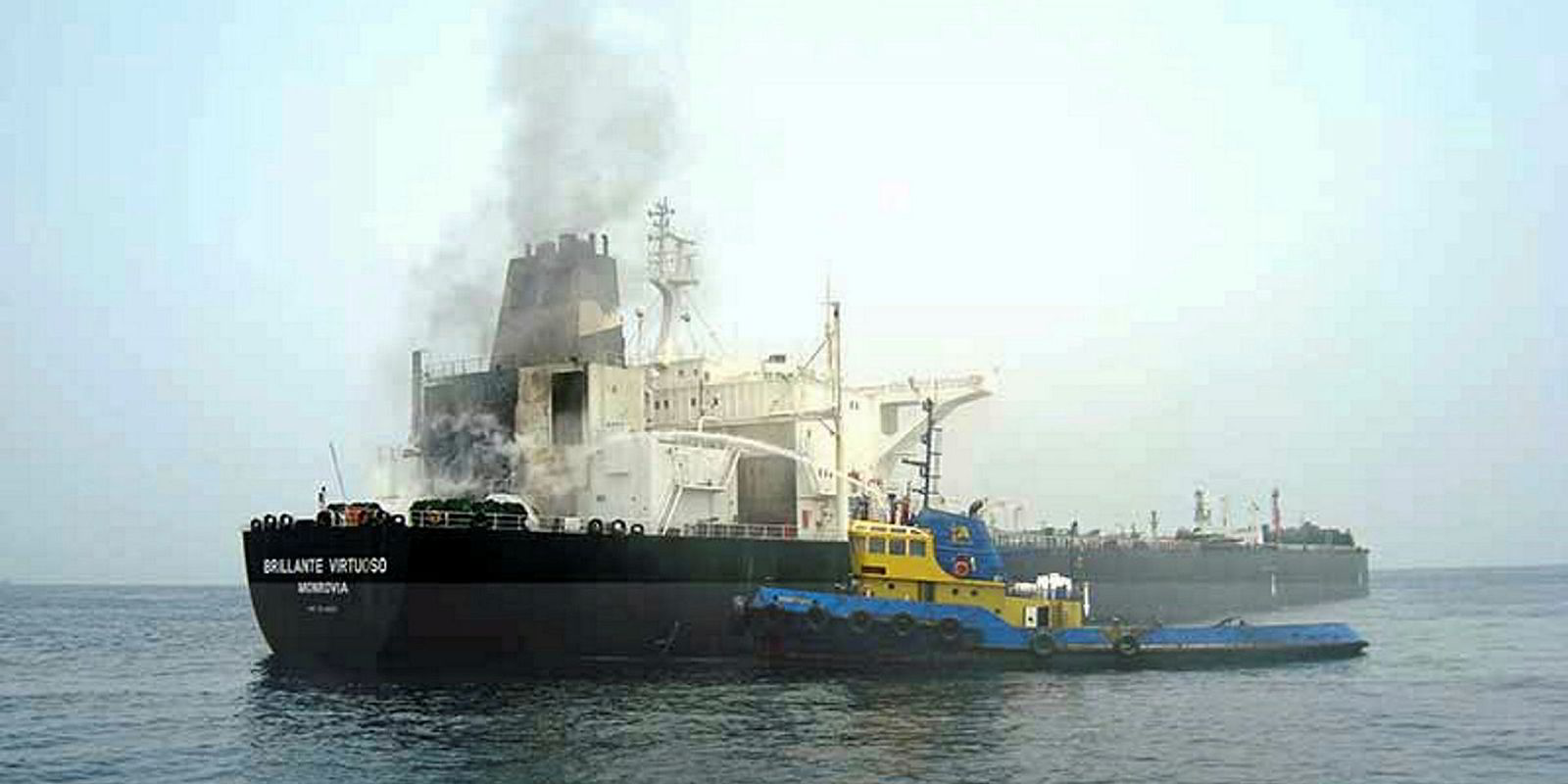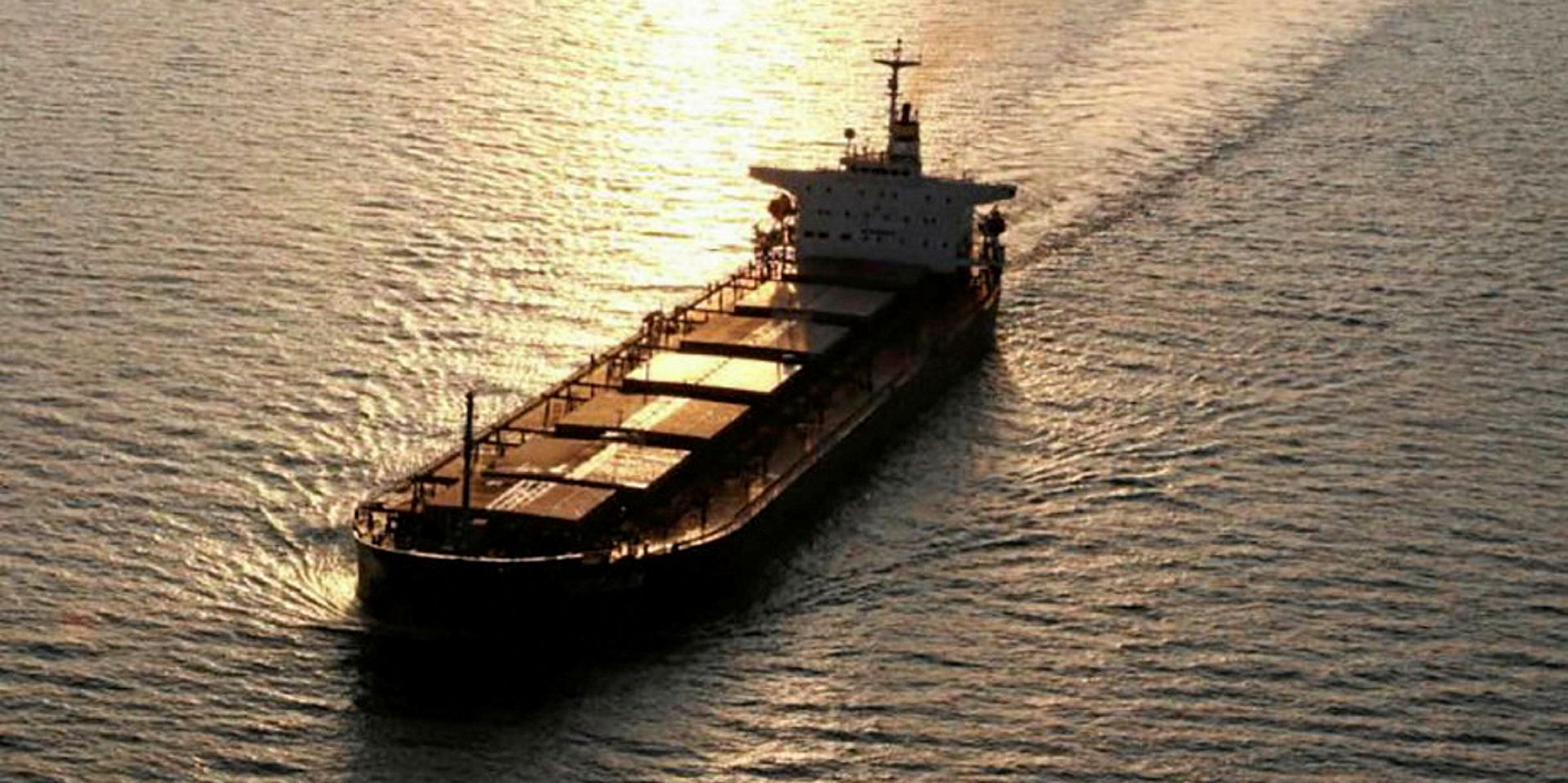In a landmark ruling, the UK court of appeal has ordered Japan's MOL to compensate Total for a halted voyage after the Japanese owner's VLCC hit an underwater object in the Suez Canal.
The French oil major's CSSA Chartering and Shipping Services had been awarded $1.2m in a 2017 commercial court judgement following the aborted trip in 2015.
The 302,000-dwt VLCC Pacific Voyager (built 2009) had been booked that January for a voayge from Rotterdam to Asia.
The charter contained no expected time of arrival or readiness to load at the loading port, but did contain an expected time of arrival at the last discharge port under a previous charter.
The appeal court had to determine whether there was still an absolute obligation to begin the voyage to the loading port based on the dates given, and whether that obligation took effect when it was reasonably certain that the vessel would leave the last discharge port of the previous charter.
The tanker had been carrying a cargo under the prior charter that it was due to discharge part of at Ain Sukhna in Egypt, south of the Suez Canal.
It would thereafter go to Sidi Kerir at Alexandria to reload a part cargo, and thence proceed to Antifer, Le Havre, for final discharge.
VLCC takes underwater hit
On 12 January, while the vessel was transiting the Suez Canal, it suffered rapid water ingress in the number one starboard ballast tank, and developed a starboard list.
The cause was attributed to contact with a submerged object connected with dredging operations being undertaken nearby.
There is no suggestion that the vessel or MOL was in any way at fault, or could reasonably have prevented what happened.
An underwater survey confirmed that the cargo had to be discharged in Egypt and that the VLCC would have to be drydocked for repairs before performing any further laden voyages.
MOL told CSSA of the incident on 13 January 2015 and later said repairs would take months.
The cancellation date was 4 February and two days later, CSSA tore up the charter and subsequently brought a $1.2m claim for damages.
In the previous commercial court judgement, Justice Andrew Popplewell ruled in favour of CSSA.
Dates disputed
He said the owner gave intermediate port estimates which involved the vessel arriving at Antifer on 25 January 2015 for final discharge of its previous cargo.
This carried with it "an estimate that she would take a reasonable period after arrival at Antifer to complete discharge," he added.
"She was bound thereafter to embark on the chartered service. It is therefore the end of that additional period of reasonable discharging time that the owners gave as an estimate of the expected commencement of the approach voyage and of the chartered service.
"In my judgment that is the time at which the owners were under an absolute obligation to commence the relatively short approach voyage to Rotterdam, namely at the end of a reasonable discharging period for the vessel if she were to arrive for final discharge at Antifer on 25 January 2015."
MOL argued that the obligation of "utmost despatch" could only apply when the vessel departed from her last discharging port under her previous charter, it argued.
And, since the tanker never did depart from that port, the obligation of utmost despatch never arose.
But appeal judge Justice Andrew Longmore said the obligation of utmost despatch is an important obligation and is intended to give comfort to a charterer.
"If the owner had wanted to make the beginning of the chartered service contingent on the conclusion of the previous voyage, much clearer words than the parties have chosen would be required," he added.
Costs to be paid by MOL
MOL was also ordered to pay CSSA's costs of £64,000 within 14 days.
The Japanese owner is seeking leave to appeal the decision in the supreme court, the UK's highest court.
Quadrant Chambers said the decision was an important one in cases when no estimated time of arrival has been included in charters.
"Where such statements are absent, the question in any particular case will be whether an equivalent can be identified, which the parties can be taken to have intended be used as the basis for an absolute obligation requiring the owners to proceed to the load port by a particular date," it added.
"In this case, the court of appeal considered that the itinerary for the voyage under the prior charter was just such an equivalent."
Law firm Hill Dickinson said it viewed the case as an interesting development as it extended the circumstances in which the charter obligation had been held to apply to include a situation where it also contains an agreed laycan/cancelling date.






